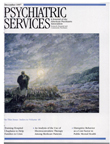When Madness Comes Home: Help and Hope for the Children, Siblings, and Partners of the Mentally Ill
As the subtitle indicates, this book is intended for people who have a sibling, parent, or partner suffering from a mental illness. When Madness Comes Home was stimulated by the severe, chronic mental illness of the author's sister. It is well written and extensively researched. I appreciate the frequent notes and the lengthy bibliography. In preparation for writing the book, the author, who is a journalist and lecturer, interviewed 75 siblings or offspring of mentally ill persons, dozens of parents, 15 persons with mentally ill spouses, and others. The results provide some very interesting reading. But something is not right.
Unfortunately, very few of the references describe the brain biology or genetics of mental illness, and the author's knowledge of these areas seems weak. Although the book by E. Fuller Torrey and colleagues (1) about their studies of identical twins is listed in the bibliography, no mention of it is made in the text. The strong evidence this research supplies in supporting neurodevelopmental and birth complications in the etiology of major mental illnesses is ignored.
The author's lack of understanding of genetics is apparent a number of times in the book, illustrated by such statements as "And faulty genes don't tell you much because you also may have characteristics that modify their expression, such as charm or intelligence." If that were true, I know a lot of intelligent, charming people who would not be seriously mentally ill, but they are.
My major disagreement with the author stems from the fact that, again and again, she blames parents for a child's mental illness. She quotes David Elkind, professor of child study at Tufts University: "Some parents have a hard time accepting their role in the illness…. Parents don't see the connection to their own behaviors early on." Later, quoting from The Invulnerable Child, edited by Anthony and Cohler (2), she writes: "To some extent, the family is always sick along with its sick member—sometimes physically, sometimes psychologically, and often empathically."
Reading these and similar comments, I think of the many healthy families I have met at National Alliance for the Mentally Ill support groups. Some of them are coping with extraordinary difficulties that most families would be unable to handle.
Partners of mentally ill persons have difficult marriages; siblings and offspring of mentally ill people often have very difficult childhoods. The amazing thing is that many of them come through these situations and go on to live fulfilling and useful lives. Understanding the symptoms of the illness and sharing feelings at support group meetings can help. Secunda recommends therapy, but the choice of an appropriate therapist is important.
The best advice this book offers to family members is to acknowledge the presence of the illness and talk openly about it. The author writes: "The single greatest source of distress for the offspring and siblings I interviewed was not so much the presence of mental illness, but that no one talked about it, and no one explained it." She also mentions the value of family support groups in which people can talk freely with others who will understand. This is my major area of agreement with the author.
I hope people who read When Madness Comes Home will be able to take from it what is of value, without being unduly influenced by the stigmatizing discussions about "dysfunctional" families or the confusion about the causes of mental illnesses.
Ms. Bouricius, who lives in Amherst, Massachusetts, is a family member of the Alliance for the Mentally Ill of Western Massachusetts and a family support group leader.
1. Torrey EF, Gottesman II, Taylor EH, et al: Schizophrenia and Manic-Depressive Disorder: The Biological Roots of Mental Illness as Revealed by the Landmark Study of Identical Twins. New York, Basic Books, 1994Google Scholar
2. Anthony EJ, Cohler BJ (eds): The Invulnerable Child. New York, Guilford, 1987Google Scholar



